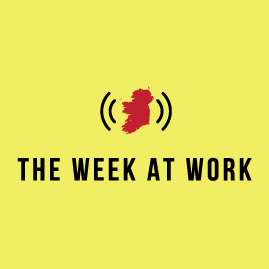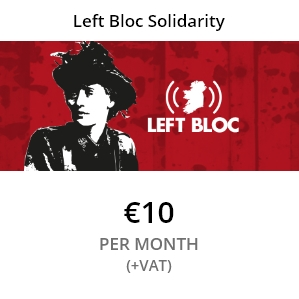The surveys we rely on do not really capture the living standards of young people
Ciarán Nugent
More than 6 in 10 young adults are now living at home in Ireland, the highest rate since we started counting in 2003. For the 25-34 year-old group, over 60% of whom have a third level qualification (the 2nd highest in Europe), over 4 in 10 still live at home. It’s the 7th highest rate in the EU and over the last decade has increased more than in any other EU member. Over 6 in 10 of this group work full time. Other than Portugal, the average age of flying the nest has increased more in Ireland the last 15 years than any other EU member, now at over 28 years old. These numbers precede the current ‘unprecedented’ inflation. Rents continue to spiral. This will most likely get worse.
The fact that we continue to have the “have young Irish people ever had it so good?” debate is fascinating in and of itself. Why is it that seemingly en masse, young people are worrying about the Irish economy and what it is offering for the future, and at the same time column inches and radio minutes are regularly devoted to denying this as a reality based on some chart or other, inevitably followed by some observation relating to the availability of phones or consumption of exotic fruit. Young people are just negative!
Why the disconnect?
It may be a reflection of the change in the labour market over the past 15 years. Before the financial crisis around 60% of all Irish workers were under 40. Now it’s around 45%. There are still 250,000 fewer workers under 40 than there were in 2007. It may be that young people simply do not have the representation in workplaces around the country they did 15 years ago. Think tanks? Economics departments? Newsrooms?
In Maslow’s hierarchy of needs housing is one of the first things we need for a full life. Not just for safety but for physiological needs – the biological requirements for human survival. If this basic need is unattainable for growing numbers of workers, it’s fair to say that the Irish economy is failing young people. It’s clear that living standards have fallen for those who rely on wages to live.
One of the reasons some of the headline figures on living standards seem to contradict the testimony of a generation (two generations?) is because we measure most indicators at the household level in surveys. As I’ve mentioned, the composition of households for young adults and young workers has changed significantly over the past decade or so as their wages in many instances are not high enough for the cost of living independently. Their wages are however counted with their parents’ income and so we might hear things like “household incomes have never been so high” etc.
We measure all sorts of living conditions at this level. Recently for instance, the fact that we have a very low at-risk-of-poverty rate in an EU context for under 30s and relative to the population was doing the rounds across traditional and social media. But the explanation of this seeming mismatch of perceptions is simple: over 4 in 5 of them are stuck living at home, relying on the good graces of their parents. The household level figure obscures the reality of increasing numbers of young adults.
Falling wages and living standards
The fact is, the wages of young Irish workers have declined relative to older workers since 2006 more than any other high-income EU country (across most occupational groups too) and even with a third level education, many are not securing employment which provides the expected returns to that education. Over a third of working graduates under 35 are in jobs that don’t require their qualifications and thus pay less.
There has been no wage-price spiral. Inflation is bad. It will have economic consequences if incomes don’t keep pace, similar to the downward demand spiral we experienced in the austerity years (or all the economic textbooks need a fundamental rewrite and we can advise the ECB not to worry and that its new inflation target should be 8%). We may already be seeing signs of this with two quarters of contraction in modified domestic demand and a levelling off of employment growth and even slight contractions in a number of sectors in the latest data.
Irish workers and the Irish economy need a wage increase in line with inflation.
Ciarán Nugent is a PhD candidate with the Department of Sociology in Maynooth and part-time Lecturer in Political Economy in the department of Applied Social sciences in Maynooth. An economist by trade, he also sits on the Living Wage Technical Group and the Board of Directors for GEMS NI.














Comments